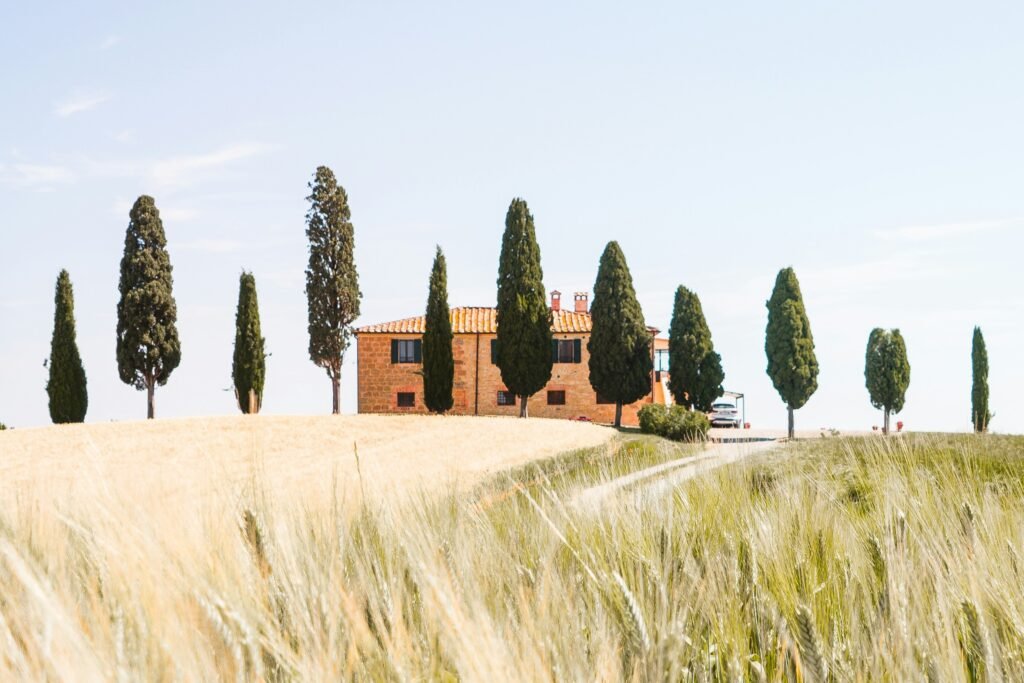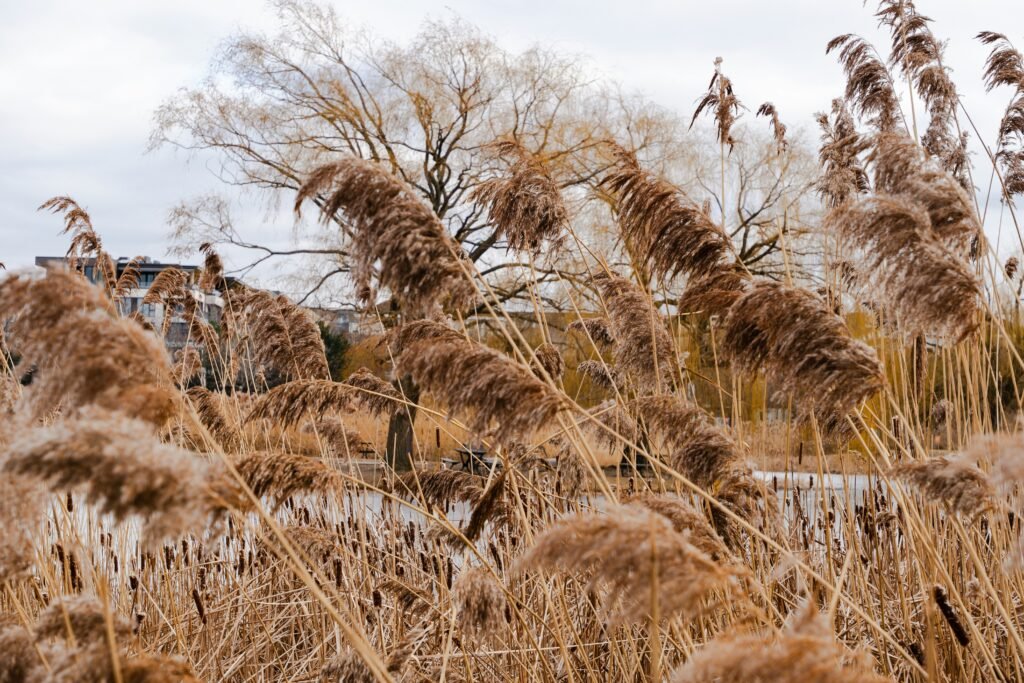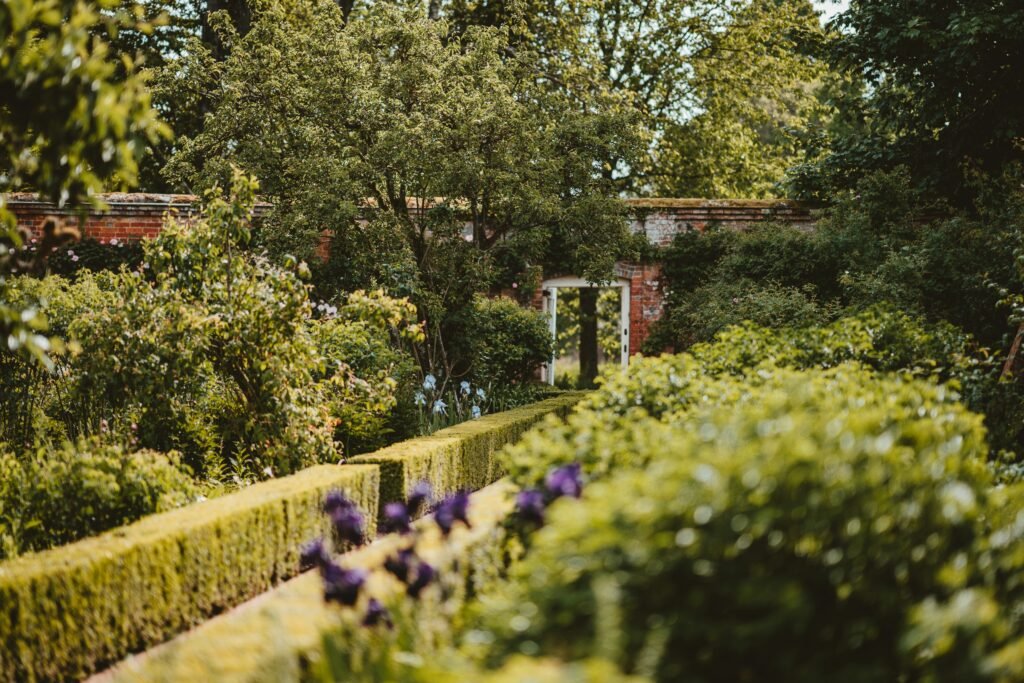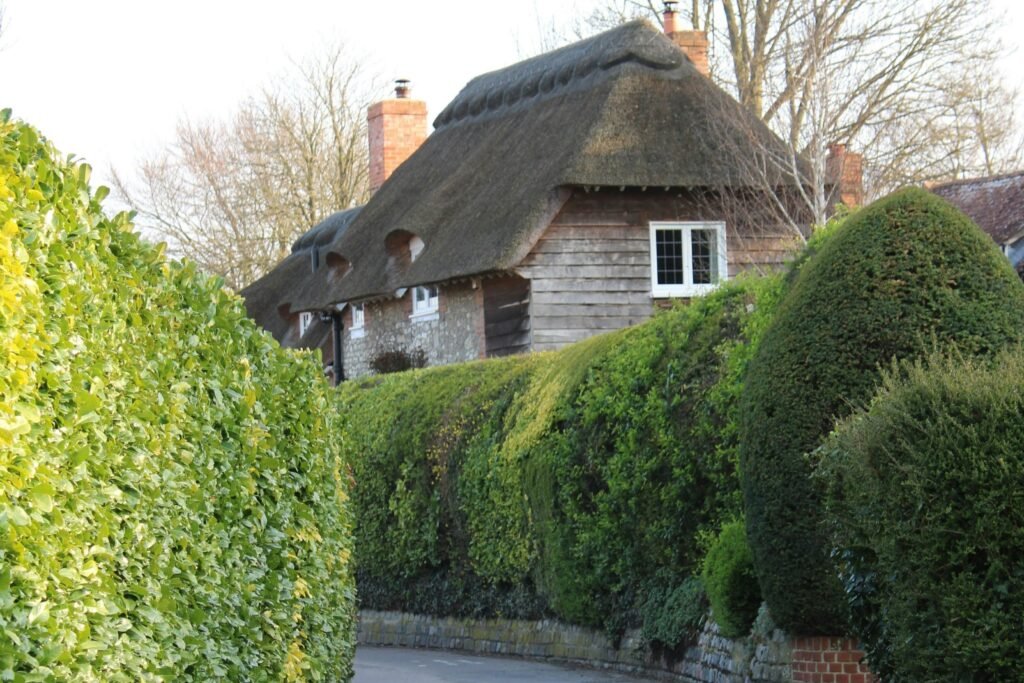Whether you want to enjoy a peaceful retreat, shield your yard from neighbors, or establish a sense of seclusion, plants and trees are your best outdoor friends.
Choosing the right plants or trees for privacy at your home involves factors such as growth rate, climate suitability, maintenance requirements, and available space. Not all plants make good privacy screens, but depending on your needs, some work better than others. In this article, we’ll explore options that work well in different situations, seasonal choices and factors to consider when picking out trees or bushes to shield your yard from the neighbors.
Factors to consider
When selecting plants or trees for privacy in your yard, it’s not as simple as throwing a few saplings in the ground and calling it a day. Plants and trees are living, breathing organisms (obviously), and some do better than others in a given situation. Keep these factor in mind:
Growth rate of privacy plants and trees
- Fast-growing options: If you want to establish privacy quickly, fast-growing plants and trees such as bamboo, hybrid willows, or Leyland cypress can take the waiting game out. These options can provide significant growth in a short period, often several feet per year. However, fast-growing plants may require more frequent pruning and maintenance to keep them in check.
- Slower-growing options: Slower-growing plants and trees like boxwood, holly, or laurel can be a better choice if you have the luxury of being patient. While they might take longer to reach the right height, they often have a denser growth habit and require less frequent pruning. This can save you time later on maintenance.

Climate zone suitability
- Warm climates: In warm regions, options like oleander, podocarpus, or clumping bamboo can thrive and provide excellent privacy. These plants are well-adapted to heat and humidity, making them ideal for Southern or coastal areas. Oleander, in particular, is a versatile choice that offers beautiful flowers and can be grown as a shrub or trained into a small tree.
- Cool climates: For cooler areas, consider evergreens like arborvitae, spruce, or juniper. These plants maintain their foliage year-round, providing consistent privacy even in the winter months. Deciduous options such as privet or viburnums can also be suitable, although they may lose their leaves in winter. However, their dense branching structure can still provide some level of screening.
Low-maintenance options
- Requiring minimal pruning: If you prefer a low-maintenance approach, consider plants like skip laurel, red tip photinia, or Japanese yew. These options tend to have a more compact growth habit and require less frequent pruning to maintain their shape. Skip laurel, for example, has a dense, evergreen growth that can be easily shaped into a hedge or left to grow naturally.
- Drought-resistant: In areas with limited rainfall or water restrictions, opt for drought-tolerant species like California lilac, rosemary, or olive trees. These plants can thrive with minimal watering once established, making them a practical choice for water-wise landscapes. Rosemary, in particular, is a versatile option that not only provides privacy but also offers aromatic foliage and culinary uses.

Space requirements
- Plants and trees suitable for small yards: If you have a limited space, consider narrow-growing options like Italian cypress, sky pencil holly, or columnar juniper. These plants provide vertical privacy without taking up too much horizontal space, making them perfect for narrow side yards or tight spaces. Sky pencil holly, for instance, has a unique columnar growth habit that can reach heights of 8-10 feet while only spreading 2-3 feet wide.
- Plants and trees that need more room to grow: For larger yards, you can choose more expansive options like Leyland cypress, green giant arborvitae, or weeping atlas cedar. These plants can create a stunning privacy wall, but they do require ample space to reach their full potential. Weeping atlas cedar, for example, can grow up to 40-60 feet tall and 20-30 feet wide, making it a dramatic focal point in a spacious landscape.
Shade tolerance
- Shade-friendly plants and trees: If your yard has shaded areas, consider plants like cherry laurel, aucuba, or yew. These options can grow well in partial to full shade, allowing you to create privacy even in less sunny locations. Aucuba, also known as spotted laurel, is an excellent choice for shaded areas as it features glossy, evergreen foliage with yellow spots that add visual interest.
- Options that require full sun: For sunny locations, options like emerald green arborvitae, pittosporum, or wax myrtle can be excellent choices. These plants thrive in full sun exposure, providing dense foliage and fast growth. Pittosporum, for instance, is a versatile evergreen that can be grown as a shrub or small tree, offering both privacy and attractive, fragrant flowers.
Cost considerations

- Budget-friendly options: If you’re looking for affordable privacy plants, consider options like privet, euonymus, or fast-growing grasses like pampas grass or feather reed grass. These plants are typically less expensive than larger trees and can still provide effective screening. Privet, in particular, is a classic choice for hedges and can be easily propagated from cuttings, making it an economical option for larger projects.
- Higher-end options: For a more substantial investment, you can opt for mature trees like magnolia, cypress, or cedar. While they may have a higher upfront cost, they can provide instant privacy and add significant value to your property. Southern magnolia, for example, is a stunning evergreen tree with large, glossy leaves and fragrant white flowers that can create a formal and elegant privacy screen.
When in doubt, go evergreen
When creating privacy in your yard, you almost can’t go wrong choosing evergreen plants and trees. Unlike deciduous options that lose their leaves in winter, evergreens maintain their foliage throughout the year, providing a consistent screen and sense of seclusion. Evergreens also tend to be low-maintenance, and don’t require the extensive cleanup associated with deciduous plants that drop their leaves in the fall.

Popular evergreens for privacy
- Arborvitae, particularly the ‘Emerald Green’ variety, is a classic choice for privacy hedges. With its dense, feathery foliage and upright growth habit, arborvitae can create a neat and attractive natural privacy fence. It grows well in a variety of soil types and is relatively low-maintenance.
- Cypress trees, such as Leyland cypress or Italian cypress, are fast-growing evergreens that can quickly create a tall privacy screen. Leyland cypress has a pyramidal shape and soft foliage, while Italian cypress offers a narrow, columnar growth habit that is better for tight spaces.
- Juniper is a versatile evergreen that comes in various shapes and sizes, from low-growing groundcovers to upright shrubs and trees. Varieties like ‘Skyrocket’ juniper or ‘Spartan’ juniper have a narrow growth well-suited for creating privacy.
- Holly: Holly is a classic evergreen shrub that offers glossy, dark green foliage and dense growth. Options such as ‘Nellie Stevens’ holly or ‘Oakleaf’ holly can be attractive, with the added bonus of producing bright red berries in the winter.
- Boxwood: Boxwood is a slow-growing evergreen shrub prized for its dense, compact growth and versatility. It can be easily shaped into formal hedges or topiaries, making it a popular choice for creating structured privacy in more formal landscapes.
Planting distance and spacing
When planting evergreens for privacy, consider their mature size and growth rate. As a general rule, space plants about half of their mature width apart. For example, if a shrub has an expected mature width of 6 feet, plant them 3 feet apart. This allows the plants to grow together and create a dense screen over time.
Make sure to account for future growth when spacing evergreens. While it may be tempting to plant them closer together for instant privacy, this can lead to overcrowding and poor plant health in the long run. Give each plant enough room to reach its mature size without competing for resources.

Consider a mixed evergreen hedge
While a hedge composed of a single species can create a uniform look, a mixed evergreen hedge can be more resilient to pests and diseases, as a single issue is less likely to affect the entire hedge. By combining different textures, colors, and growth habits, you can also create a more visually interesting and dynamic privacy screen.
When creating a mixed hedge, choose evergreens with complementary characteristics. Consider mixing plants with different foliage textures, such as the feathery foliage of arborvitae with the glossy leaves of holly. You can also combine plants with varying shades of green or even introduce colorful foliage like the bluish tones of some junipers.
Arrange the plants in a staggered pattern rather than a straight line to create a more natural look, again considering the mature size and growth rate of each plant. Prune regularly to encourage dense growth and to keep the plants at the desired height and shape.
Pest and disease resistance
Some evergreens are naturally resistant to common pests and diseases, making them easier to maintain. For example, ‘Green Giant’ arborvitae is resistant to deer browsing and is less susceptible to bagworms than other arborvitae varieties. Similarly, ‘Spartan’ juniper is resistant to cedar-apple rust and other common juniper diseases.
However, even resistant evergreens can become vulnerable to pests and diseases if they are not properly cared for. To keep your evergreen privacy screen healthy, plant them in well-draining soil, provide adequate water and nutrients, and prune regularly to promote air circulation and remove any damaged or diseased branches. Regularly inspect your plants for signs of stress or infestation.
Conclusion
With the right selections of plants and trees, you can create a desirable, private and secluded feel to your yard. While plants and trees — particularly evergreens — offer year-round privacy, alternatives like trellises and fences can also provide additional screening and support for climbing plants. With careful planning and proper care, you can transform your yard into a beautiful and private retreat that enhances your outdoor space and adds value to your property.

